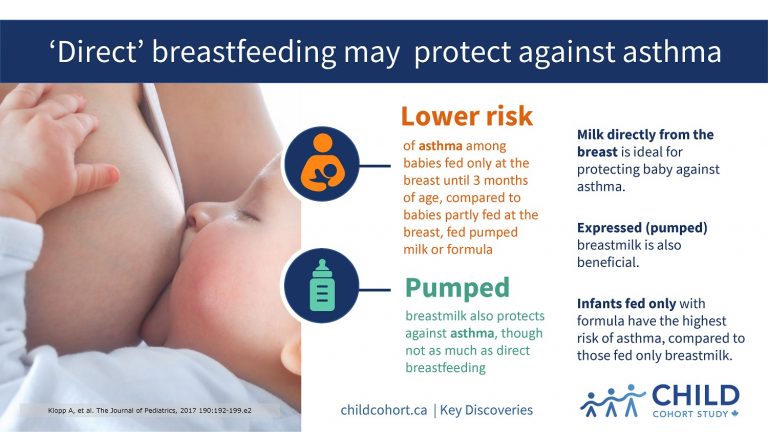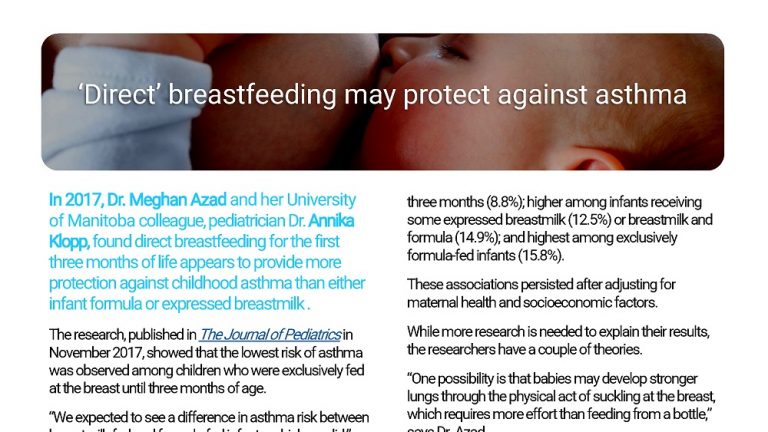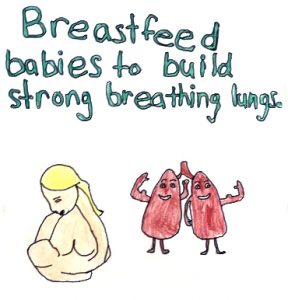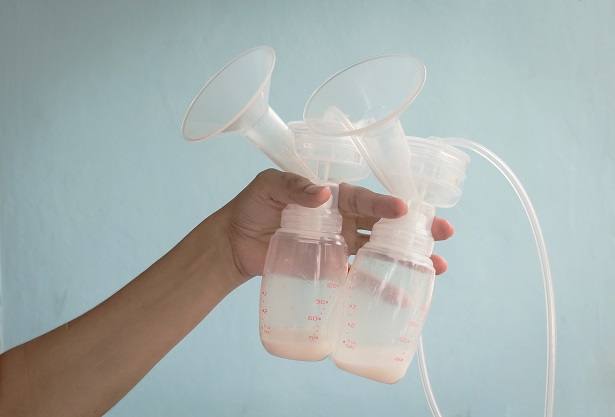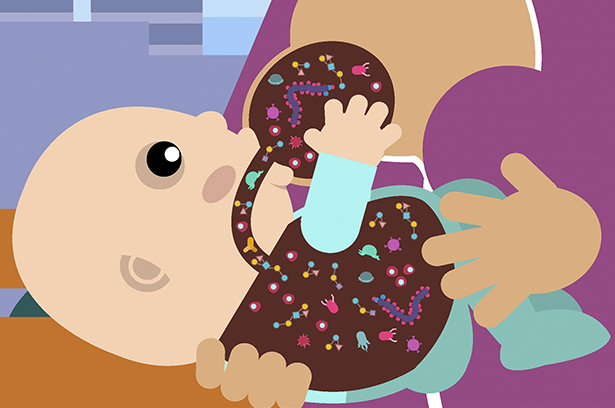'Direct' breastfeeding may protect against asthma
In 2017, Dr. Meghan Azad and her University of Manitoba colleague, pediatrician Dr. Annika Klopp, found direct breastfeeding for the first three months of life appears to provide more protection against childhood asthma than either infant formula or expressed breastmilk.
The research, published in The Journal of Pediatrics in November 2017, showed that the lowest risk of asthma was observed among children who were exclusively fed at the breast until three months of age.
“We expected to see a difference in asthma risk between breastmilk-fed and formula-fed infants, which we did,” says Dr. Azad.
“However, we were surprised to find that for the breastmilk-fed babies, how the babies received breastmilk seemed to matter too.”
The research analyzed data from more than 3,200 moms and babies participating in the CHILD Cohort Study (CHILD). Infants were classified into four feeding categories at three months of age: (1) breastmilk only – all direct breastfeeding; (2) breastmilk only – some expressed breastmilk; (3) infant formula and breastmilk; or (4) infant formula only. At three years of age, the children were assessed for possible or probable asthma.
LOWER ASTHMA RISK
The researchers found that asthma risk was lowest among infants who received direct breastmilk only to three months (8.8%); higher among infants receiving some expressed breastmilk (12.5%) or breastmilk and formula (14.9%); and highest among exclusively formula-fed infants (15.8%).
These associations persisted after adjusting for maternal health and socioeconomic factors.
While more research is needed to explain their results, the researchers have a couple of theories.
“One possibility is that babies may develop stronger lungs through the physical act of suckling at the breast, which requires more effort than feeding from a bottle,” says Dr. Azad.
“Another theory is that the steps involved in pumping and storing breastmilk might negatively affect the milk’s special cells, proteins and molecules that help to protect against asthma.”
Image from the CHILD Cohort Study breastfeeding video
Dr. Azad is quick to note that expressed breastmilk still proved more beneficial than infant formula. “Moms go through a lot of effort to pump breastmilk for their babies, and I wouldn’t want them to get the impression that it’s not worth it – there are definitely health benefits to pumped breastmilk over formula feeding.”
In January 2018, MD Magazine interviewed the researchers to help translate the findings for primary-care physicians. Dr. Azad shared with the magazine her team’s hope that the study will guide “future research on the best ways to store and feed expressed milk, and that it will inform societal policies to protect, promote and support breastfeeding.”
MD Magazine provides physicians with up-to-date specialty and disease-specific resources designed to help primary-care physicians provide better care to patients.


